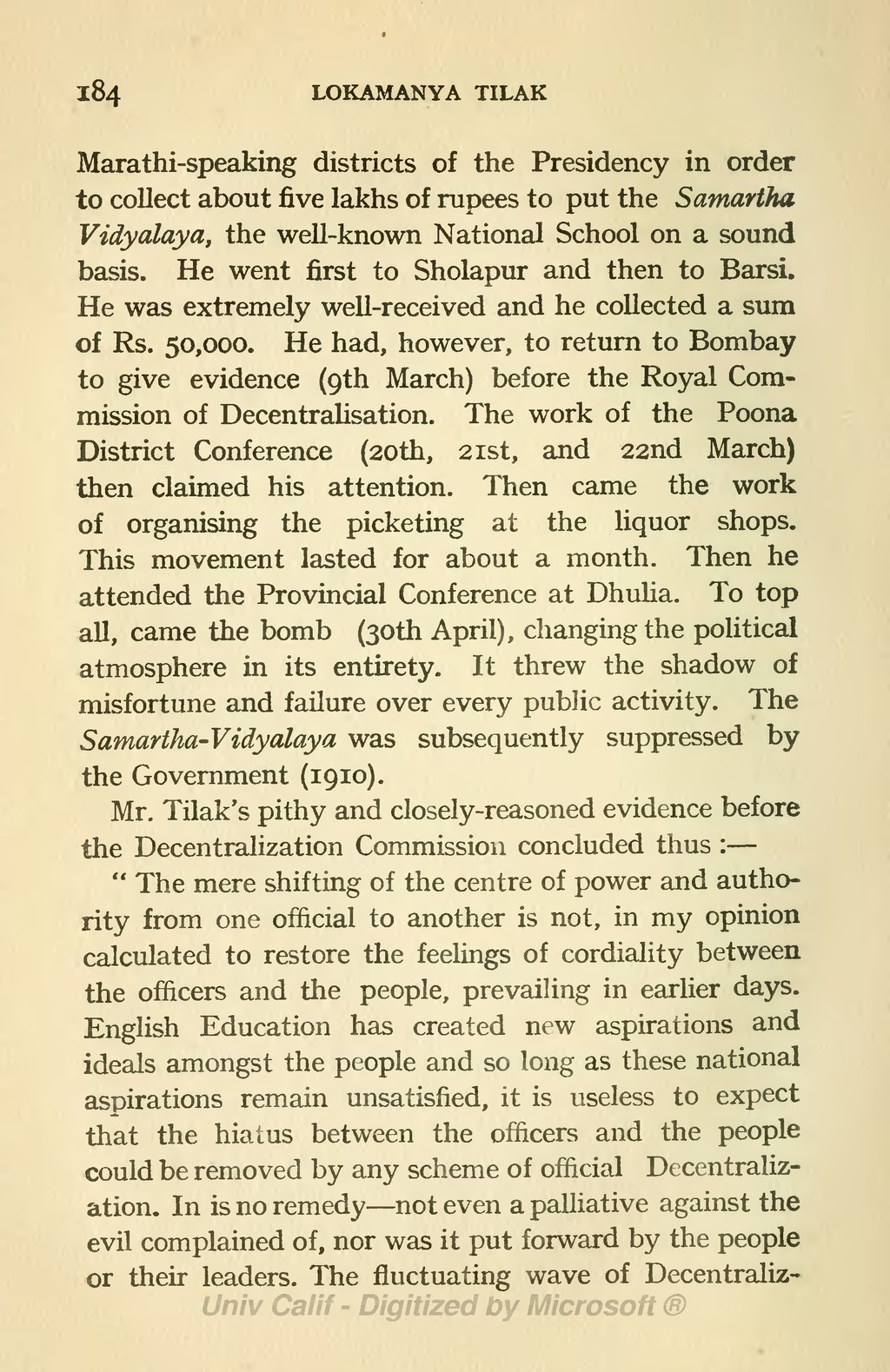Marathi-speaking districts of the Presidency in order to collect about five lakhs of rupees to put the Samartha Vidyalaya, the well-known National School on a sound basis. He went first to Sholapur and then to Barsi. He was extremely well-received and he collected a sum of Rs. 50,000. He had, however, to return to Bombay to give evidence (9th March) before the Royal Com- mission of Decentrahsation. The work of the Poona District Conference (20th, 21st, and 22nd March) then claimed his attention. Then came the work of organising the picketing at the liquor shops. This movement lasted for about a month. Then he attended the Provincial Conference at Dhulia. To top all, came the bomb (30th April), changing the poHtical atmosphere in its entirety. It threw the shadow of misfortune and failure over every public activity. The Samartha-Vidyalaya was subsequently suppressed by the Government (1910).
Mr, Tilak's pithy and closely-reasoned evidence before the Decentralization Commission concluded thus : —
"The mere shifting of the centre of power and authority from one official to another is not, in my opinion calculated to restore the feelings of cordiality between the officers and the people, prevailing in earlier days. English Education has created new aspirations and ideals amongst the people and so long as these national aspirations remain unsatisfied, it is useless to expect that the hiatus between the officers and the people could be removed by any scheme of official Decentralization. In is no remedy — not even a palliative against the evil complained of, nor was it put forward by the people or their leaders. The fluctuating wave of Decentralize
